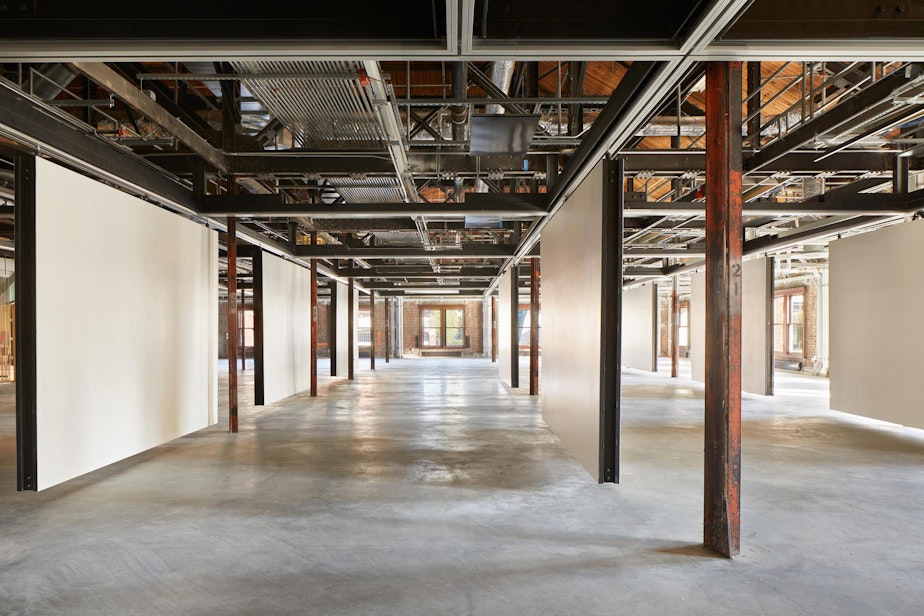Seattle invests in cultural space, with an eye towards inclusivity

For much of the past year, Seattle's arts and cultural organizations have been hit hard. Even before the pandemic, many were struggling to keep up with rising rents, and unable to hold on to their venues and workspaces.
Now, there's a new effort from the city to give these organizations some long term stability. This week, Mayor Jenny Durkan signed off on the city's Cultural Space Agency.
It's essentially a real estate development company that will purchase properties and develop them for arts and cultural groups. It will be guided by community leaders who are Black, Indigenous, and people of color.
Matthew Richter is the Cultural Space Liaison for the City of Seattle. He joined KUOW to explain how it will work.
T
his agency is going to step in and secure site control, it's going to secure ownership opportunities, it's going to secure long-term, predictable control over cultural sites. It's then going to share that site control with community groups, with arts organizations, with individual artists.
The historic theater in your neighborhood, the ground floor of the new affordable housing development in your neighborhood, the available storefronts in that mixed-use building in your neighborhood — this organization will step in and either lease or own that real estate.
And then create opportunities to partner with community artists, organizations and downstream of itself, to be an intermediary between the worlds of commercial real estate and the worlds of cultural development, community development, small business development.
It will create a mission-driven landlord or ownership partner for cultural communities of color in Seattle, that provides for some predictability, provides for some breathing room, so that this organization can come in, lock down ownership of a site. And then it's mission-driven over the course of time to then cede that ownership, to move that ownership opportunity out into community.
Sponsored
The typical measure of a real estate organization is, does it own more stuff year-after-year? Does the number of square feet that it controls year-over-year increase? Really, the measure of this organization is going to be the speed with which it moves that ownership opportunity out into cultural communities.
The city defines "cultural space" really broadly. Clearly, we're talking about the traditional arts and cultural [spaces]: Museums, galleries, cinemas, theaters, etc. But we're also talking about artists creative space. We're talking about community meeting space. We're talking about really any space, whether it's for profit or not for profit, that holds community. We're talking about any space that really holds and helps develop cultural communities in Seattle.
The history of Seattle has been this history of haves and have-nots — of those who have access to capital and to property, and those who don't. The pandemic, the connected recession, the racial reckoning that is happening locally and nationally, is really exacerbating and accelerating those issues.
Sponsored
It's critical now that cultural communities have an opportunity to lock down ownership, control, and predictability of their presence in these neighborhoods. There's going to be a lot of opportunity created through Covid. We're going to be losing a lot of businesses, we're going to be losing a lot of cultural spaces. There's going to be a lot of need for filling these commercial spaces, these cultural spaces around town. Let's ensure that we've filled them with locally responsive cultural organizations.
Listen to the interview by clicking the play button above.





